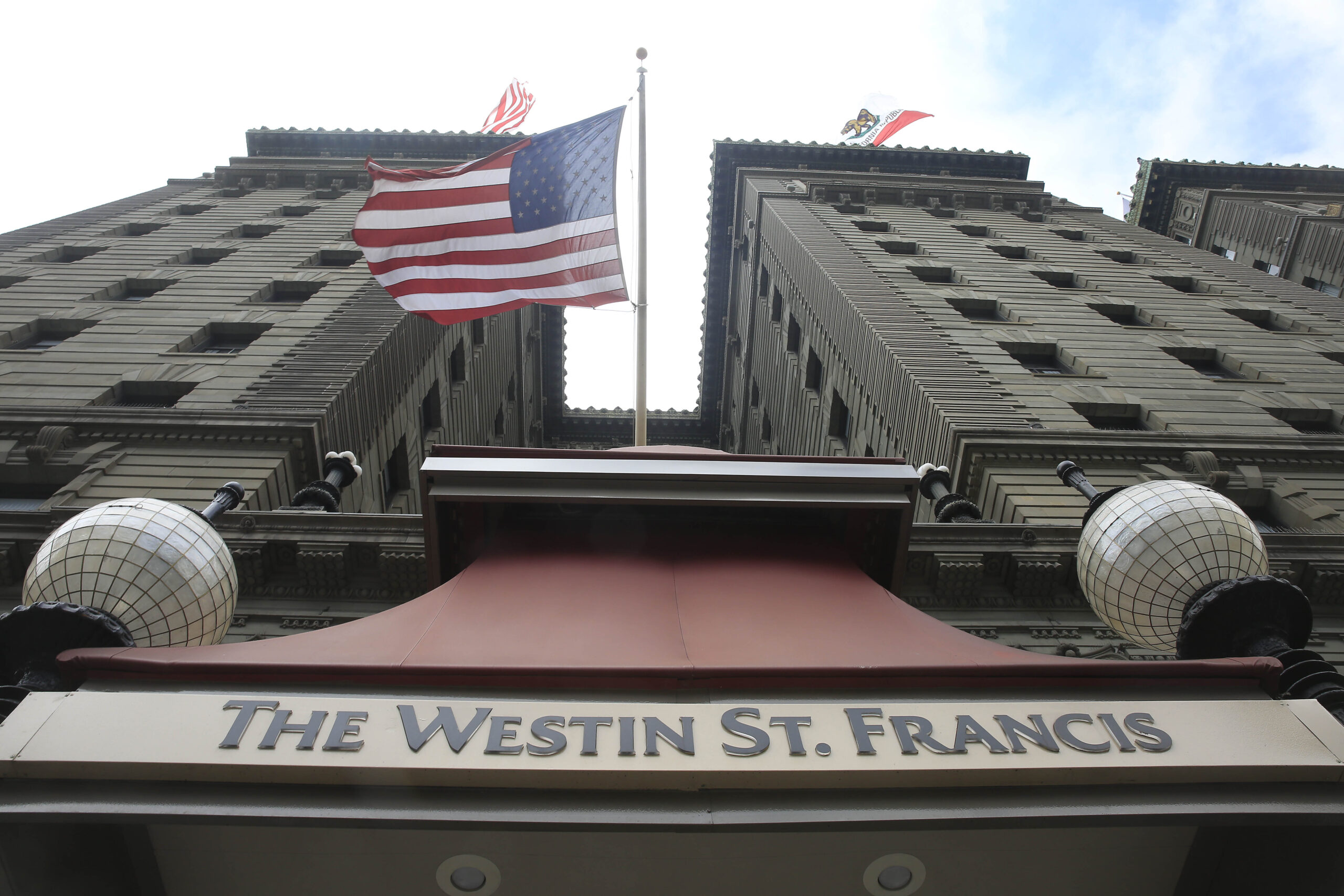The Chase Center. The Westin St. Francis Hotel. The Transamerica Pyramid.
These properties are among the most iconic in San Francisco, but what they also have in common is their owners are applying for dramatic cuts in their assessed values in a worrying sign for the city’s fiscal health.
At Chase Center, property owners are attempting to cut the city’s assessed $1.48 billion value for the stadium by some 58% to $635 million.
The owner of the Transamerica Pyramid, New York developer Shvo, which purchased the building in 2020, is seeking a 53% reduction in its assessed value from $485.5 million to $227 million.
The Westin St. Francis Hotel owners are applying for a more than 90% decrease in its assessed value of $787 million all the way down to $76 million.
It’s not unusual for owners to appeal property assessments—successful appeals can mean major tax discounts—but the number of appeals has surged in recent years.
“There’s a crisis out there, and everyone knows it,” said Peter Fatooh, the president of the appeals firm SF Property Tax Appeals, citing an array of problems ranging from worsening homelessness to record vacancy rates. “On the commercial side, there’s no question we’re suffering as much as we did in 2008, if not worse.”
Fatooh, who previously sat on San Francisco’s assessment appeals board for more than two decades, said there’s been a big influx of commercial property owners actively seeking property tax relief.
All told, there were 2,873 property assessment appeals in San Francisco filed to the assessment appeals board in the fiscal year ending in July, reflecting more than $60 billion in total property values.
Other notable properties seeking major cuts to their property values include:
- Westfield San Francisco Centre, seeking a 60% reduction from $499.7 million to $199.9 million,
- Macy’s Union Square, seeking a 50% reduction from $354.3 million to $177.2 million,
- The Armory in the Mission District, seeking a 42% reduction from $87.3 million to $50 million.
Property owners can file annually to temporarily adjust the assessed value used by the city to determine their tax bills because of economic conditions. The application then goes to an assessment appeals board, which weighs the arguments and comes to a determination. The board has two years from the date the application is filed to render a decision.
Over the last year, large temporary reductions were granted to the Westfield San Francisco Centre, and the apartment buildings at 150 Van Ness Ave. and 100 Van Ness Ave., among hundreds of others.
Assessment appeals can be made for business assets, but the bulk of the applications and value is focused on real estate. Property taxes are the single largest source of revenue for San Francisco, earning more than $2 billion annually to pay for city services like street cleaning, public health programs and law enforcement.
It’s also one of the revenue sources most threatened by remote work, which emptied out Downtown offices and weakened the city’s recovery.
For the time being, the city’s total accounting of all real estate and business property is still rising. In July, the Office of the Assessor-Recorder reported the number at around $340 billion for 2023-2024, an increase of approximately $15 billion over the previous year.
“Is [the assessor-recorder’s] job to protect the tax base because we need that income to run the city or is your job to fairly assess and understand the conditions that these property owners are facing?” Fatooh said.
There are risks on the horizon. San Francisco property tax revenue is currently projected to fall between this year and next, and the city is expecting to refund around $167 million in property taxes over the next two years because of successful assessment appeals.
The number of property owners seeking reductions to their property values—and by extension their tax bills—has risen each year since 2018. The number of applications during the last fiscal year is at its highest level in nearly a decade.
According to data from San Francisco’s Assessment Appeals Board, property owners are seeking an average of 40% reductions in their assessed value.
That may seem steep, but it’s in line with a broader decline in property values that the city could see due to the impact of remote work. A paper from New York University and Columbia University researchers estimated $32.7 billion in reduced value for San Francisco commercial properties between 2019 and 2022.
Some commercial buildings have traded hands in recent months at much lower prices than their prior valuations.
Earlier this month, San Francisco real estate investor Presidio Bay Ventures announced its purchase of 60 Spear St. for $40.9 million, 66% less than the $121 million the city’s assessed value.
Another office high-rise at 550 California St. is under contract in the low $40 million range, according to real estate sources—more than 70% lower than its $155 million assessed value.
Real estate professionals say because of open questions about when leasing and associated revenues will recover, there is widespread uncertainty about where values will ultimately land. Signs are not pointing in the right direction.
“San Francisco doesn’t want to recognize the tremendous loss in commercial property values,” Fatooh said. “There’s too much pride in City Hall. But I’m going to say this as someone with 40 years of experience in the market, there’s no way these commercial properties are on the rise.”
